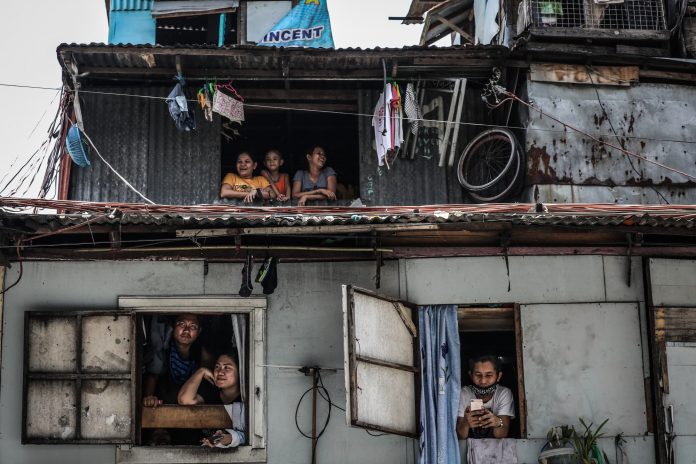Early this month, Bishop Broderick Pabillo, the apostolic administrator of the Archdiocese of Manila, proposed the creation of a health ministry in all its parishes.
Such ministry, he said, is important as parishes prepare for the resumption of church services with people in attendance.
Opening up religious services in a safe way would be among the tasks of the ministry, the prelate said. Another task is extending services to the elderly, as well as attending to those who may later be found to have an illness.
It’s an idea whose time has come, from where we sit, given our overburdened national healthcare system.
Consider this: Close to 40 percent of the poorest municipalities in the country have no doctor, according to the Department of Health (DOH).
The reason: most doctors are “discouraged” from serving in poor and low-income communities due to wage disparities.
In the Bangsamoro Autonomous Region in Muslim Mindanao alone, 36 of its municipalities are “doctorless.”
A doctor hired by the local government unit (LGU) of a 6th class municipality is entitled to receive only 65 percent of what a doctor working for the national government receives.
This has discouraged doctors from serving in low-income municipalities or geographically isolated and disadvantaged areas.
The problem is that LGUs cannot raise the salaries of doctors because of two existing laws.
Section 325 of the Local Government Code caps the total appropriation of LGUs for personal services at 45 to 55 percent, which limits the number of doctors that can be hired.
Then there’s Section 10 of Republic Act No. 6758, or the Compensation and Position Classification Act of 1989, which defines the rates for pay in LGUs depending on their class and financial capability.
At present, 372 doctors are deployed under the DOH’s “Doctors to the Barrios” program, with more than half serving in 4th to 6th class municipalities.
Meanwhile, the Association of Municipal Health Officers in the Philippines believes that doctors serving in rural areas should ideally receive between 80,000 and 90,000 pesos in monthly salary. However, the majority of rural doctors are still receiving 50,000 pesos and below.
“Many people stay at home and keep safe during this global pandemic, but we rural health doctors are fighting the unseen enemy and yet are not given enough protection,” an officer of the group lamented.
With many far-flung communities unable to get the services of doctors, how can we expect the over-all health situation in the country to improve, and enable us to fight a deadly viral infection?
The 1987 Philippine Constitution mandates the government “to protect and promote the health of the people and instill health consciousness among them.”
The Philippines already has a Universal Health Care Law that allows all citizens to be covered by the healthcare system. But the Philippine Health Insurance System or PhiHealth that’s supposed to implement the law has suggested that it be suspended for the meantime. Why? Because contributions have not been paid by workers unable to go to work since the lockdown in their communities due to COVID-19.
The agency is also strapped for cash because the so-called “sin taxes” imposed on cigarettes and liquor that should go to PhilHealth have not been collected since mid-March this year as a result of the lockdown and the liquor ban.
In many parts of the world, Pope Francis observed recently, basic health care “is denied to too many people. It is not a right for all, but rather still a privilege for a few, for those who can afford it.”
“Health is not a consumer good but a universal right, so access to health services cannot be a privilege,” the pontiff said.
More than this, he explained, “healthcare facilities should be more and more homes of welcome and comfort, where the sick person finds friendship, understanding, kindness and charity—in other words, humanity…The sick person is not a number: he or she is a person who needs humanity.”
Well said, and a timely reminder to our own government that health should be given the top priority in the over-all scheme of things, particularly since our own healthcare system has been overburdened by the COVID-19 pandemic.
Ernesto M. Hilario writes on political and social justice issues for various publications in the Philippines. The views and opinions expressed in this article are those of the author and do not necessarily reflect the official editorial position of LiCAS.news.









